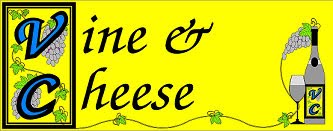The highest predictor of quality you can find on a wine label is whether or not the wine is estate bottled. You have to be careful though because producers will play with words to mislead the consumer. For instance, the word estate by itself means nothing legally on a wine label. Likewise, while it's always nice to see the words single vineyard on a label, that too doesn't signify estate bottling. The key words for ascertaining estate bottling are grown, produced and bottled by on the back label. If any of those three words is not there, the wine is not estate bottled.
So what's the big deal with estate bottling? In short, it signifies quality control. It means the viticulture on the property is intimate. Someone is walking the vineyards daily throughout the growing season overseeing every element and aspect of production followed by hand harvesting at season's end. Great wines are made in the vineyard and that production is protected in estate bottled winemaking.
This post concerns the domestic wine industry and the US Bureau of Alcohol, Tobacco and Firearms regulates that industry. Estate bottling in America must meet three qualifications: 100% of the grapes used must be grown on the estate or on land in the same appellation and controlled by the estate; 100% of the wine is vinified, blended and aged at the winery and 100% of the production is bottled at the winery.
It should be no secret that the wine industry has become big business. More than ninety percent of wine sales are controlled by the thirty largest companies in the world (overwhelmingly American) and the largest company on that list dwarfs all of the others. If you hear of a winery that has just sold for some exorbitant amount of money, it is often just the wine label that has been purchased. The buyer already has the wine in inventory and depending on the quality of that inventory the label may resemble what it was previously or a noticeable drop off in quality may be in the offing. In any event, it is not the same product it was before.
Our recent posts on Torbreck and Januik wineries seem to indicate estate winemaking but neither declares it on the label. Both use estate fruit and seem to exercise control over nearby other-owned vineyards so you would think they qualify as estates. Torbreck is Australian so American wine laws don't apply there but Januik apparently falls short of the estate bottling qualification.
It should be noted that with specificity in wine production, quantities of production become limited and with all that is required in labor, prices are higher for estate bottled wines.
The Hafner Vineyards website provided much of the content for this post. They are justifiably proud of their estate bottling bonafides...and they should be.




No comments:
Post a Comment